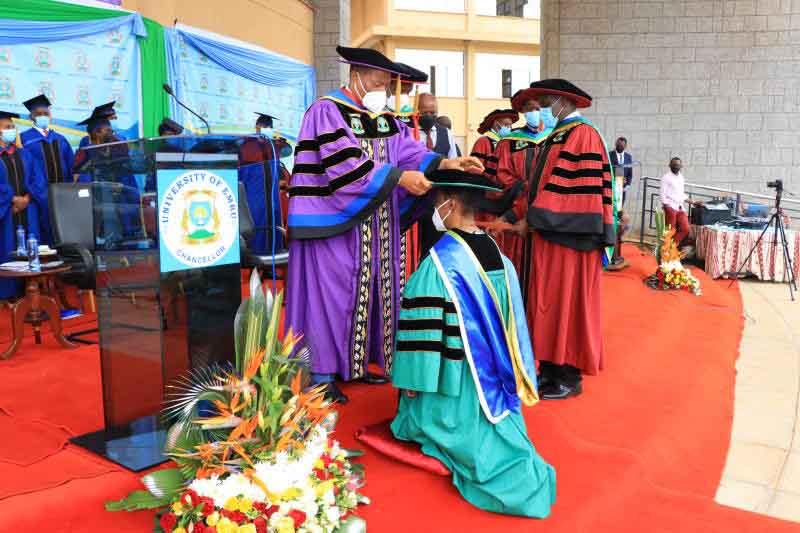×
The Standard e-Paper
Kenya’s Boldest Voice

Prof. Musili Wambua, the Chancellor University of Embu confers a PhD during a past graduation ceremony. [Muriithi Mugo, Standard]
The University of Embu has established a media training department.